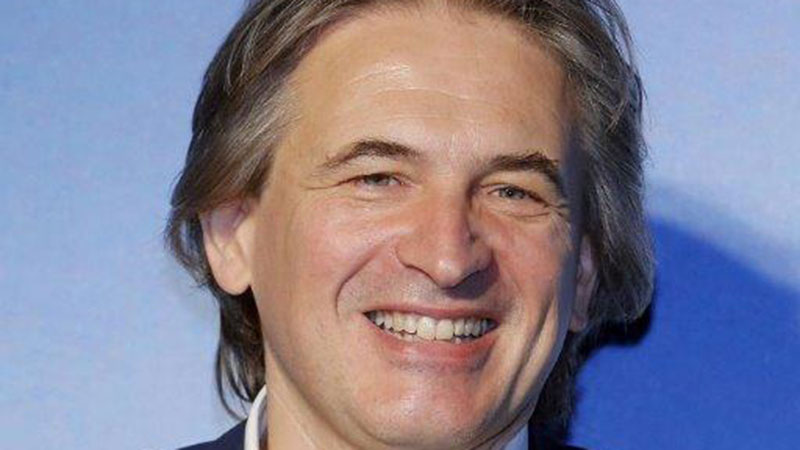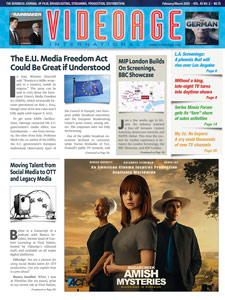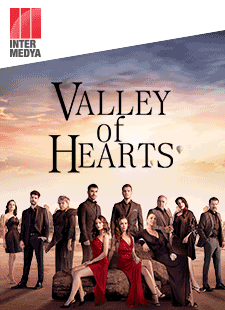Antonio Campo Dall’Orto (pictured above), the new CEO and director general of RAI, Italy’s state broadcaster, has a problem: He’s not a politician, but a television industry expert. And in Italy, such professional qualifications can interfere with political agendas.
Prior to joining RAI, Campo Dall’Orto (or CDO as the Italian press calls him) worked at Mediaset, Viacom and the La7 TV network. Italy’s prime minister, Matteo Renzi, wanted CDO to serve as RAI’s first non-politician/industry insider CEO and gave him carte blanche to reinvigorate and rejuvenate the Rome-based media group.
Campo Dall’Orto’s first move was to surround himself with equally capable executives coming from the Italian private TV sector (20 are from Italian subsidiaries of American companies). The general press, not accustomed to seeing non-politicians in key managerial positions at RAI, criticized the move. Politicians decried the hiring too, claiming that out of 252 top and middle level RAI executives, only 17 (and not 20) could be hired from outside the group.
It’s interesting to note that other major Italian institutions, such as the Uffizi Museum in Florence (which recently hired German art historian Eike Schmidt as its new director), are now bringing in executives trained in non-Italian companies to run their operations.
Another obstacle that Campo Dall’Orto faces is that politicians now seem to take pride in showing how much they like interfering in RAI’s day-to-day operations (in the past, they went out of their way to falsely present a RAI that was free of political intervention). These days, any excuse — be it lower ratings, choice of presenters or the on-air presence of opposing politicians — is a good reason to start a parliamentary inquiry.
With this baggage in mind, VideoAge traveled to Rome, for a face-to-face interview with the 52-year old Campo Dall’Orto, who graduated from Venice’s Ca’ Foscari University with a degree in economics.
While VideoAge was in Rome for the interview, Italian politicians (possibly as a show of force) organized a conference titled “For a Bigger RAI.” However, they failed to indicate a comparison (“bigger” than what, exactly?) and did not illustrate RAI in international terms, focusing instead on Rome-centric issues.
Regardless, the aptly titled conference was integrated into the interview, since Campo Dall’Orto touched on a range of issues, including local production with international appeal, co-productions, worldwide content sales, RAI’s international channels, copyright protection, rights acquisitions and, of course, the creation of a “bigger” RAI, which could encompass production, co-production, content sales (RaiCom), channels (Rai Italia) and a festival (Prix Italia) under one umbrella, BBC World-style. Some domestic issues were touched on as well, such as making RAI’s talk shows more viewer-friendly by having moderators who do not keep interrupting, and guests who don’t all talk at the same time.
What follows is a set of topics VideoAge discussed with Campo Dall’Orto. At times, the questions were longer than the answers:
VideoAge: As RAI’s first director general (and first in a CEO position) from the private TV sector, what kind of legacy do you hope to leave?
CDO: I hope to leave RAI better off with three main achievements: More international content, produced with less money and [I want RAI to be] a better media company.
VA: Some of RAI’s major productions, like Montalbano (which is also sold internationally by RaiCom), are available for free on YouTube. How are you planning to protect RAI’s content?
CDO: We created a new division to deal with piracy and unauthorized online postings under the management of Gian Paolo Tagliavia, who is director of RAI Digital and president of RaiCom.
VA: In the recent past, world sales of RAI programs have suffered for both lack of internationally suitable content and poor management. What are your future plans?
CDO: To improve international sales. We have to invest in the type of content.
VA: Is there a plan to acquire language rights instead of territorial rights for content?
CDO: Yes. Now RAI will strive to buy language rights [instead of territorial rights] so that acquired content in the Italian language can be viewed on our TV channels not just in Europe, but also overseas.
VA: At the national level, is there a way to have talk shows without guests talking at the same time and hosts who interrupt or repeat what the guest just said?
CDO: My immediate goal is to cut the length of talk shows in half, to 90 minutes.
VA: RAI has talent and resources often repressed by Rome-centric politicians who are unabashed in interfering with the organization. In such a predicament, is there a way to create a RaiWorld in the style of BBC World that would group RAI’s international channels (Rai Italia), RAI’s sales (RaiCom), RAI’s co-productions and international festivals (Prix Italia)? That way RAI could compete on the sales level with similarly large media entities.
CDO: Definitely. Starting with the children’s division, we’re grouping four different units (development, production, digital programming and sales) under one entity, Rai Kids.
For RAI Italia, [which has changed names several times, including RAI International and RAI World], the new plan will be tackled after the convention with the Italian Government, which contributes 6.7 million euro per year for a three-year program. Prix Italia is indeed a window on the world for RAI and Italy. This year’s edition [on the island of Lampedusa] was a special event. Next year, Prix Italia will return to its traditional schedule and format.
Editor’s Note: Currently, RAI broadcasts three TV channels outside Europe: Rai Italia, Rai Premium and Rai News 24. However, while distribution is under RaiCom, programming is under three different divisions.
Campo Dall’Orto seemed to agree that the current structure is too fragmented and each sector is too small to compete on an international level. When TV channel distribution was handled by RAI executive Giovanni Celsi, there was an attempt to create a Rai World modeled after BBC World, however politicians imposed fragmented international operations in order to make more executive positions available for patronage. For Rai Italia (which can transmit only outside Europe), the previous management made drastic changes and it is unclear how Campo Dall’Orto plans to improve it.
Finally, if Campo Dall’Orto attends MIPCOM, as he used to do when he was at Viacom, and as he indicated he would during this VideoAge interview, he will be the first RAI director general to participate in an industry event since the 1982-1990 period, when legendary RAI director general the late Biagio Agnes was seen at NATAS’ International Council and other trade shows. Indeed, ever since the departure of Agnes, RAI and the Italian TV sector in general has been declining in its international presence. In the past, Italians had been pioneers in creating film and TV-related international events, such as the Venice Film Festival (1932), Prix Italia TV Festival (1948), Advertising Film Festival, now Cannes Lions (1954), MIFED film-TV market (1960) and the International Council (1968).
by Dom Serafini
Audio Version (a DV Works service)












How does the new CEO of Rai plan to deal with the millions of dollars being stolen at RAI CORP here in New York by its’ Pres. Guido Corso and Vice President Pizzo?. Former Vice President Antonio De Vita stole 2 million dollars (according to a La Republica article in 1998) and was dismissed in 1998, no restitution was made apparently, WHY?. Mr. De Vita went from chauffer to the president of RAI corp to V.P., Vice President Pizzo went from receptionist to V.P….neither Mr. Corso nor Ms. Pizzo have a college degree, only a high school diploma. Are audits done of Rai Corp for the years that Corso and Pizzo have been in position of power at RAI corp., I don’t believe so. Very sad, Italian citizens have been in dire financial distress since 2008 and these ill equipped and uneducated ” executives” are stealing millions for their personal gain.